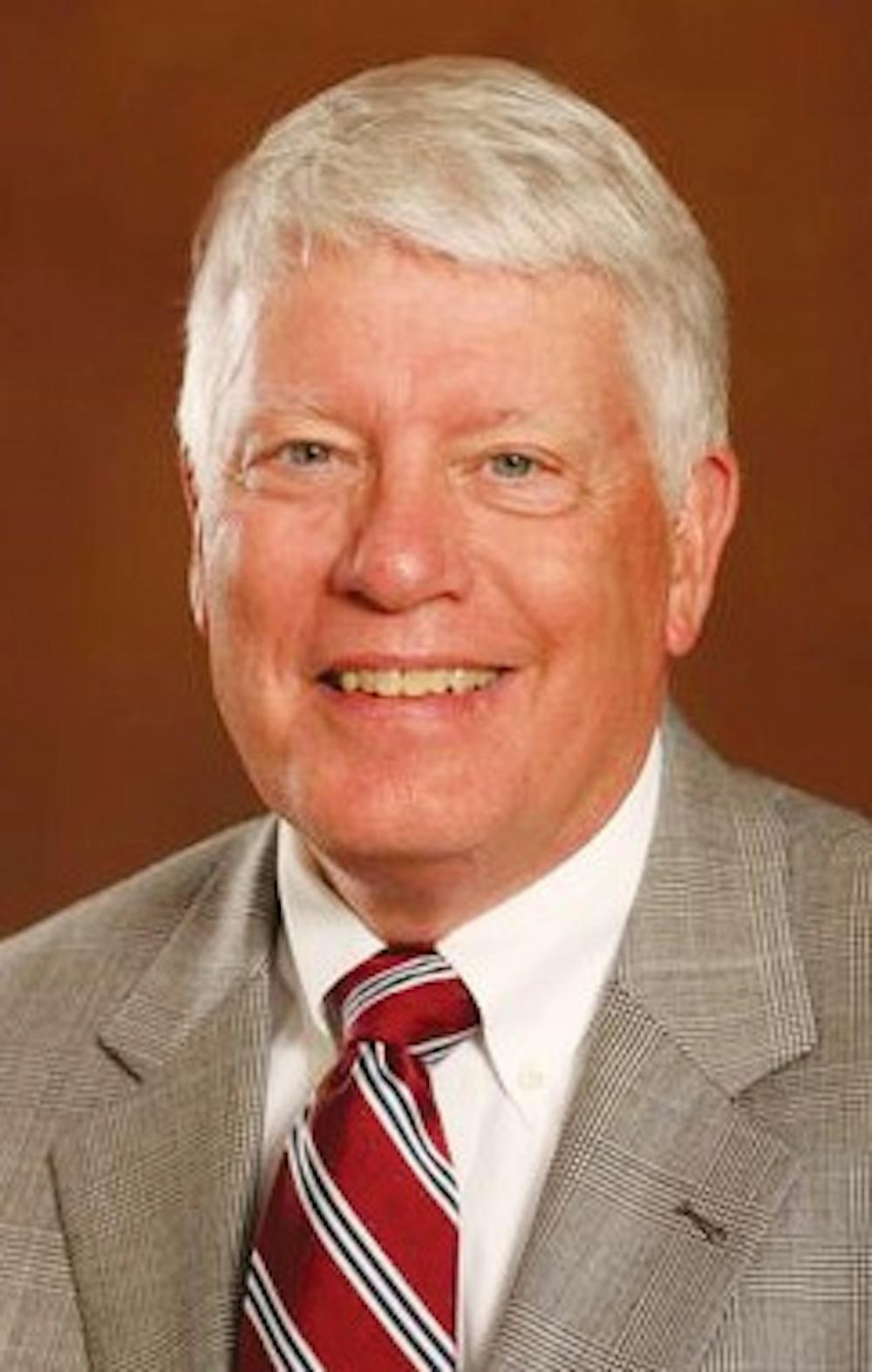College of Business down nearly $800,000 in revenue
Following a decline in enrollment this year, the College of Business Administration is predicting a $789,719 drop in revenue, according to a comparison of the 2012-13 and 2013-14 operating budget summaries.
CBA’s total revenue decreased by 1.68 percent this year from 2012-13’s total of $47 million to this year’s $46.2 million.
Dean of CBA Charles Crespy said the decline was predicted, and the college that teaches introductory business courses for freshmen might be offering fewer sections in the future.
“We’re planning in the long run for what might be a smaller college,” Crespy said. “We may offer fewer courses and see less revenue. This variation is within control limits. We feel anxiously optimistic that the decline will be offset in future semesters.”
Crespy pointed to the university’s decline in enlisting high school graduates, an issue echoed by other deans at CMU. He named CBA’s BIS and BUS 100 courses as seeing the greatest decline in enrollment.
“The numbers, in my estimation, are relatively smaller,” Crespy said. “We are more concerned with developing and redesigning programs to advance the careers of our students, not maximizing credit hour production. If you’re constantly chasing dollars, you lose track of what you really need to do.”
Enrollment in CBA’s entrepreneurship program, he said, has seen a significant decrease due to higher standards and a redesigned, more intensive program. Students are now expected to spend more time crafting their own business model, Crespy said, while learning the ins and outs of managing finances.
“We’ve created a more rigorous, relevant program,” he said. “It’s more difficult; our numbers have decreased. Now it’s targeted more directly. We anticipated enrollment would shrink.”
Enrollment numbers for CBA have not been updated for fall 2013 in the Office of Institutional Research. Crespy said students are still being dropped and added to sections, while tuition payments are cleared.
Adjustment to the declines, he said, will rely on the success of currently active programs which have recently launched CBA into the national spotlight.
“If we continue to raise our national rankings, enrollment won’t be a problem,” Crespy said. “People will flock here.”
CMU’s business school hosts the sixth best online MBA program in the country, as ranked by US News and World Report, a publication renowned for academic rankings.
Despite national achievements, Crespy pointed to a decline in state appropriations as a “philosophical shift” for lawmakers, reducing revenue at CMU.
Although 2011-12 saw a 14.4 percent drop in state aid from $11.4 million in 2010-11 to $9.8 million, state appropriations have recently been on the mend, as they grew to $10.1 million in 2012-13, and to $10.4 million this year.
Crespy cited high-profile celebrities such as Bill Gates and Mark Zuckerberg for changing the public idea of higher education.
He explained the “virtuous cycle” of the Servicemen's Readjustment Act of 1944, or GI Bill, which was intended to force newly-educated individuals to contribute more to society. Famous multi-millionaires, Crespy said, have changed public attitudes toward this process.
“These sorts of decisions are political ones,” Crespy said of the fluctuating government assistance. “The view of education as a public good has changed to that of a personal good. The model of higher educated people paying more taxes isn’t really believed anymore. That notion has soured public perception.”
Vice President of Finance and Administrative Services David Burdette was encouraged by CMU’s second year of increasing state aid. He looked to Michigan’s mending economy as a reason for the growth, and was certain that graduates can still benefit the economy as a whole.
“The university, for the second year in a row, has received increased state appropriations,” Burdette said. “That showed some confidence in the governor. The Michigan economy is improving, and we are generally encouraged.We look forward to increased state support. We offer 21,000 students the best education. That can be key to helping the economy.”
According to Burdette, at a peak in 2001-02, state appropriations were 34 percent of CMU’s total funding, with tuition at 38.1 percent. By 2012-13, tuition had grown to 57.7 percent of CMU’s funding, while state aid plummeted to 15.7 percent.





